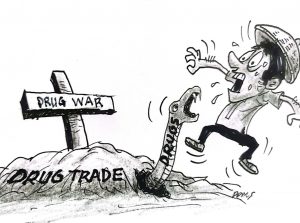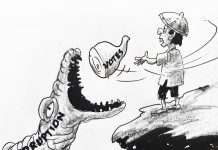The end of the drug war was supposed to mark a shift towards a more humane and strategic approach to addressing the drug problem in the Philippines. Yet, reports of drug proliferation resurfacing in various communities suggest that the underlying issues remain unsolved. It seems the quiet following the drug war was less about victory and more about a temporary lull.
The resurgence of illegal drugs points to a systemic failure in addressing root causes, such as poverty and corruption. While the previous administration’s violent campaign was unsustainable, it highlighted the scale of the problem. Now that the fear factor is gone, the same networks have quietly returned to business. This raises the question: Did we dismantle the problem or push it underground?
One glaring issue is the lack of comprehensive rehabilitation and reintegration programs. Without giving former drug users a path forward, we are simply putting a band-aid on a gaping wound. The drug trade is fueled by desperation, and people trapped in poverty are lured back into it without meaningful alternatives. The war on drugs may have temporarily suppressed symptoms, but it ignored the disease.
Moreover, enforcement has become inconsistent. The promise of focusing on big fish, not small-time users and pushers, has fallen. Local communities now speak of police forces that seem less engaged, perhaps hesitant after being criticized for their previous aggressive methods. Corruption, long embedded in the system, continues to allow drug lords to thrive, while the very structures meant to protect society crumble from within.
To truly address this issue, we need a multi-pronged approach beyond surface-level solutions. Rehabilitation, social services, economic opportunities, and stronger enforcement with accountability must work hand-in-hand. The government must shift from reactionary policies to preventive measures, focusing on long-term solutions instead of short-term wins. Ending the drug war doesn’t mean ending the fight—it means changing how we fight.




